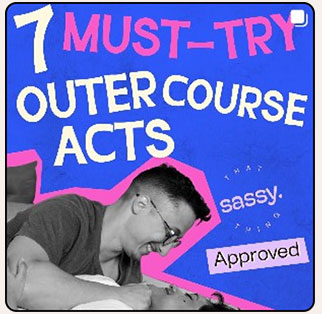Your cart is currently empty

About a week ago, a day after New Year’s to be precise, my mom stormed into my room with a smile plastered across her face. “You’ll be proud of me”, she exclaimed, “I successfully dodged your Nani’s [grandmother] 99th attempt of getting you hitched.” I looked at her for about three seconds, trying to register the words that came out of her mouth. “Mom, thanks, but really isn’t that annoying? Was she like this with you as well?”, I replied. My mom smirked and I could hear a faint ‘huh’, which was enough for me to figure out her response. She spotted the title of the book in my hand, and lifted my hand up to have a better look - ‘Erotic Stories for Punjabi Widows’, she could barely read that aloud. She glanced at me rather curiously and asked, “What’s this about?”. I tried my best to put a 307-page long book about secret desires, sexual explorations, and emancipation of Punjabi women in the Indian diaspora, into 3 simple lines: “Imagine a place where you and your friends have the safe space to talk about your temptations, fantasies and long-lost dreams as you go on this literary journey channeling your inner voice to express your erotic whims and desires, despite the societal & cultural disapproval. Now imagine, someone wrote a book about that.”

Such was the impact of a book title—what began as a quick conversation starter, turned into an hour-long rant of how my mother missed out on dating life in her early 20s because of how stringent her own father was, and how she gave up a full-fledged career in her early 30s because my father wanted her to stay at home taking care of me when I was born. She couldn’t rebel against the patriarchal forces back then, which is why this book sparked her interest.
Balli Kaur Jaswal’s ‘Erotic Stories for Punjabi Widows’ is a bold and uninhibited take on the unexplored sexualities of lonely and uneducated Punjabi widows living in Southall, London. Also known as ‘Little Punjab’ for being home to one of the largest Sikh communities in London, it was a conscious decision on the author’s part to base the plot around this city of West London. In fact, as soon as one arrives at the railway station, you can read ‘Welcome to Southall’ written both in English and Punjabi. Offering a myriad of cultural heritage hotspots, and the largest Gurudwara in London (Sri Guru Singh Sabha) - Southall is as ‘Punjabi’ as it can get. The author, in one of her interviews with an Indian media house, was quoted as saying, ”I was definitely an outsider because I don’t speak Punjabi, and it was an alienating experience to be in a place where there seemed to be only one way to be an Indian woman.”
The tale is an ‘East-West mix’, as Balli puts it, bringing together the distinctiveness of the two cultures. Even in the seemingly progressive landscape of London, the cultural oppression and moral policing of Indian (Sikh) women has been widespread for generations altogether. Set in the later 2010s, the book is able to shed light on how women are conditioned and deliberately taught to be submissive, domesticated, and subjugated. So much so, that the idea of Punjabi women (widows) not knowing English in a foreign land seems normalized. By using the not-so-fictional example of a vigilante group of Sikh men monitoring the women in the community, Balli manages to take the feminist undertones a stride ahead. This story emphasizes the importance of having a supportive community and friendship in the form of an English creative writing class, that soon became their safe space to voice their spiciest fancies and erotic expressions of love for their partners and beyond. One thing I can say for certainty - you’ll never look at sabzi (vegetables) or ghee (clarified butter) the same way!
What REALLY worked well…
Don’t judge this book by its cover - ‘Erotic Stories for Punjabi Widows’ offers more than just spicy, alluring, and sensual storytelling. The book revolves around the main protagonist, Nikki Grewal, who is at the center of everything—she’s a young woman in her 20s with non-conforming ideals and a nonchalant approach to life, her teenage angst fuelling the majority of her decisions. She’s a bartender at a local pub in West London, and the second daughter of Indian immigrants (Sikhs). The book starts with an argument Nikki has with her sister Mindi about her decision to settle for an arranged marriage, that too done via matrimonial ads. The sharp contrast in the two siblings' cultural understanding - wherein one is enmeshed and the other is actively distancing - establishes a solid ground and opening for the book and what’s about to unfold.
In order to support her family and make ends meet after the unprecedented demise of a loved one, Nikki takes up a job as a tutor for an English creative writing class. Being so close to the Punjabi community and due to a major misunderstanding, the course is attended by Punjabi widows only who are under the impression that they’ll get basic English education. These women were shrouded in white clothing, hiding behind them more than a few tasteful memories and unrequited feelings. When one of them discovered erotic literature and happens to read that out loud to the class, Nikki suddenly realized how her goal of liberating these women is larger than it looks.

An excerpt from the book
These women had provocative sensibilities, a rousing imagination, and lustful flight of fancy beneath layers of grief, sorrow, and despondence brought upon them by the loss of their husbands and years of repression by the male significant figures in their lives. Balli managed to beautifully weave together a vivid and strong narrative for these women, rising above the patriarchal shackles that held them back, expressing their desires and secrets of pleasure, intimacy, and the sheer joy of connection.
With powerful themes showcasing gender-based hierarchies, abuse of power, oppression, and communal violence— ‘Erotic Stories for Punjabi Widows’ is a rebel with a defined cause and multicultural roots.
What COULD have been better…
While the story has several references to reflect a typical Punjabi household, it does feel a bit typecasted at times. For a novel with a stellar female presence, the characterization for many, especially the widows fell a tad bit short and a more nuanced representation would have been a major icing on the cake. That said, the amusing and satirical takes add to the book’s authenticity coming from an author having her family roots in Punjab.
Note for the Readers
While the title of the book may seem deceptively simple, the story packs a punch through its gripping and engaging storyline and subversive take on archaic & misogynistic forces in the Indian culture. As put forth by the author, “Every woman has a secret life”, which refers to the duplicity experienced by many women coming from conservative homes who wish to express themselves unabashedly - just like the protagonist (Nikki).

Grab this book off the shelf if you’re someone like me who wishes to bridge the intergenerational gap between me and my mother, and my grandmother by offering them a read of a lifetime. With the new year upon us, it’s as good a time to set new precedents for a feminist, pleasure-seeking, and promoting future!
---
Juicy Reads by That Sassy Thing is an initiative where we will review books that align with our vision of making the world a safer, more pleasurable space.
We'll start with reviewing 2 books every month and as we grow, we'll have lots more coming your way!
---
About the Author

Anuja (she/her) is our Creator-in-Residence. After exploring all the different ways she could talk about who she identifies as, this is the closest she could get: “I’m your quintessential dog hoomum with a blue typewriter, living three blocks away, probably writing about you."












